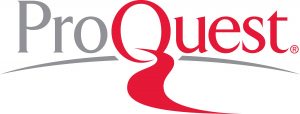After meeting with several undergraduate students at the University of Scranton over the past few weeks, I had the opportunity to explain some best practices for research when using the following three databases: CQ Researcher Plus Archive, ProQuest Central, and Academic Search Elite (EBSCO).

Before diving into the research process, the first step in the research process is identifying one’s research topic and coming up with appropriate search terms. The next step to conducting research is identifying databases in which to search for articles which are appropriate to the research being conducted. If one is looking for original, comprehensive reporting and analysis on issues in the news then the CQ Researcher plus Archive database is an excellent place to start. When using this database, one should use key words to look for a well-researched report on their topic. Upon finding a report, it is recommended that one obtain the citation for the report and that they e-mail the citation and the report to themselves. At the end of the report is a comprehensive bibliography of resources used in compiling the report. These resources could provide further insights into one’s topic.

The next recommended database for research on current issues is ProQuest Central. This database provides access to more than 11,000 publications. More than 8,000 of the publications are available in full text. ProQuest Central covers current and international content in over 160 subject areas such as: business and economics; medical and health; news and world affairs; science; education; technology; humanities; social sciences; psychology; literature; law; and, women’s studies. This database can provide thousands of results. The best way to limit your results when using this database and any database is to conduct an advanced search while setting certain limits such as full-text, peer-reviewed, setting the years of publication of articles for your search, and selecting the specific type of resource you are looking for – newspapers, magazines, scholarly journals, etc. When you find an article that interests you, it is recommended to read the abstract to determine if the article pertains to your topic. If it does, e-mail the article to yourself with the appropriate citation, and then go back to your results and keep searching.

The final recommended database for research on current issues is Academic Search Elite (EBSCO). This database contains Indexing and abstracts for 3,484 journals with full-text for over 2,000 journals, including more than 1,500 peer-reviewed titles. For this database, it is best to set limits when conducting your search, read the abstracts of articles that relate to your topic, and e-mail the articles with the appropriate citations that work for your current issue topics.
The final advice I gave to students that I met with was to feel free to come back to the Library Research Services desk and ask the Library Research Services librarians for assistance with any future research topics and projects that they may have. We are here to help and provide assistance on any research topic or project.
